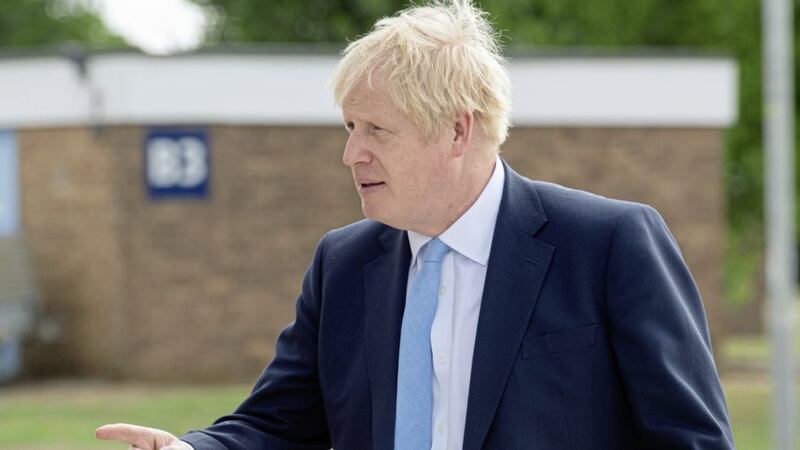Gordon Brown, remember him? He’s been going on about the ‘calamity’ Brexit will inflict on the UK because it will lead to the break up of the union, by which of course he means Scottish independence.
That’s what really concerns him, though he does have a go at the DUP for stupidly opposing a customs union and the single market, thereby endangering their stated objective of maintaining the integrity of the UK.
Brown however has to trot out guff about imaginary ‘age-old virtues of Britishness’, tolerant, inclusive, outward looking etc. The problem is that, even when he was prime minister and trying to search for distinctive British values, he failed to come up with anything different from what other nationalities also consider are their values.
One argument for maintaining the union he couldn’t make is its economic benefit. Not with the absence of any regional policy in either his or any other recent British government.
Certainly there are no economic benefits for the north remaining in the UK. In 2017 David McWilliams, the economic writer and commentator, demonstrated beyond doubt that partition has been a complete economic disaster for this place. The north has plummeted from a position where, a century ago Belfast and the counties of Antrim, Down and north Armagh produced 80 per cent of the industrial output of Ireland, to the present day when the north is the poorest region in the UK, close only to Wales, but more significantly is the poorest region in Ireland.
Fionnuala O Connor referred here yesterday to the paper published last month by Ireland’s Economic and Social Research Institute’s Professor Seamus McGuinness and Adele Bergin, ‘The Political Economy of a Border Poll’. This shows that, despite all the puffing about the great educational system here, the north’s population has the highest share of individuals in the UK with no, or basic qualifications, and is the poorest performer in terms of graduates.
Compared to the Republic it’s worse. In 2015 over a third of young people here were educated to lower secondary level or below; that’s between three and four times higher than in the Republic. As McGuinness & Bergin conclude, that ‘means that NI productivity levels will continue to lag behind those of the Republic’.
In every other respect the north is at or near the bottom or top of every index wherever is the worse position to be. The quantity and quality of foreign direct investment, the value of state benefits, including pensions, hospital waiting lists, nurses per head of the population, salaries. For example, the gap in income levels between the Southern and Eastern region of the Republic (where 75 per cent of the population live) and here, is now over $27,000 per capita.
One particularly worrying conclusion in the paper is that the north’s poverty can’t be ascribed to the effects of the Troubles. Examination of the years 2000-2014 shows that there has been no peace dividend. In those years the growth rate in the north was less than quarter of that in the Southern & Eastern region, and that’s despite the dreadful financial crisis in the south.
Ah, but what about health, the great NHS? Surely there’s one reason for individuals to extol the economic benefit of being in the UK? Hmm. The Republic spends more per capita on health than the UK. The poor and vulnerable and pensioners in the Republic hold medical cards and are entitled to free GP services. In the north increasingly the Department of Health is deliberately undermining the NHS. Those who can, pay, including to go to private GP practices. In September 2018, 94,222 people were waiting over a year for their first outpatient consultant meeting. In England, with many times the population, the figure is 3,464: scandalous. There’s more, but you get the picture.
In short, there’s no economic advantage at all in ‘the precious, precious union’. Quite the contrary and what’s certain is, it’s going to get worse.









